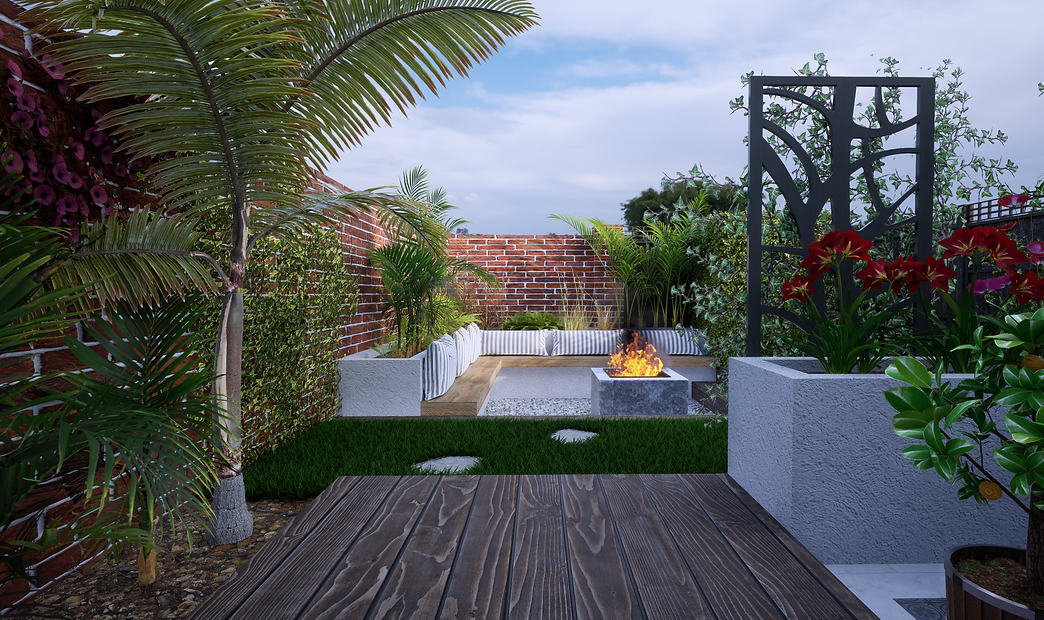In an era marked by technological advancements and the increasing demand for convenience, traditional practices are undergoing a digital transformation. Landscaping, an age-old art form, is no exception. With the emergence of remote garden design services, the future of landscaping is poised to revolutionize how we conceptualize and create outdoor spaces. In this article, we delve into the benefits of remote garden design services, exploring how they are reshaping the landscape industry.
Convenience Redefined:
Gone are the days when homeowners had to schedule multiple appointments with landscapers, endure lengthy design consultations, and wait weeks for project completion. Remote garden design services offer unparalleled convenience by allowing clients to access expert advice and design solutions from the comfort of their homes. Through virtual consultations, clients can discuss their vision, preferences, and budget with experienced designers, eliminating the need for in-person meetings and streamlining the design process.
Global Accessibility:
One of the most significant advantages of remote garden design services is their ability to transcend geographical boundaries. Whether you reside in a bustling metropolis or a remote countryside, access to professional landscaping expertise is no longer limited by location. With just a click of a button, clients can connect with skilled designers from around the world, opening up a world of possibilities for creating unique and tailored outdoor spaces that suit diverse climates, cultures, and preferences.
Cost-Effective Solutions:
Traditional landscaping projects often come with hefty price tags, comprising expenses such as site visits, travel costs, and overhead fees. In contrast, remote garden design services offer cost-effective solutions by minimizing logistical expenses associated with on-site consultations. By leveraging digital tools and communication platforms, designers can efficiently collaborate with clients without the need for extensive travel or physical presence, thereby reducing project costs and making landscaping services more accessible to a wider audience.
Enhanced Visualization:
One of the challenges of traditional landscaping design is visualizing the end result before implementation. With remote garden design services, advanced visualization tools and techniques are employed to provide clients with realistic renderings and 3D models of their proposed outdoor spaces. From plant placements to hardscape elements, clients can see precisely how their garden will look upon completion, allowing for greater input and customization throughout the design process.
Sustainable Practices:
As environmental consciousness continues to grow, so does the demand for sustainable landscaping solutions. Remote garden design services are at the forefront of promoting eco-friendly practices by incorporating sustainable design principles into their projects. From native plant selections to water-efficient irrigation systems, designers can prioritize environmental conservation and minimize the ecological footprint of landscaping projects, aligning with the global push towards sustainability.
Efficient Project Management:
Managing landscaping projects can be a daunting task, often involving coordination between multiple contractors, suppliers, and stakeholders. Remote garden design services streamline project management by centralizing communication and logistics through digital platforms. Designers can easily collaborate with clients, contractors, and vendors, ensuring seamless coordination from concept to completion. Furthermore, remote monitoring and virtual site visits enable real-time progress tracking, allowing for timely adjustments and optimizations throughout the project lifecycle.
Personalized Experience:
Despite the virtual nature of remote garden design services, the level of personalized attention and customization remains unparalleled. Designers work closely with clients to understand their unique needs, preferences, and lifestyle factors, tailoring design solutions that reflect their individual tastes and requirements. Whether it’s creating a tranquil retreat or a vibrant entertaining space, remote garden design services prioritize client satisfaction and strive to deliver outcomes that exceed expectations.
Adaptability to Changing Times:
The landscape industry, like many others, is not immune to external disruptions and changing market dynamics. Remote garden design services offer a level of adaptability that traditional landscaping firms may struggle to match. By embracing digital technologies and innovative design approaches, remote designers can quickly pivot and adjust to evolving trends, client demands, and industry shifts, ensuring relevance and competitiveness in a rapidly changing landscape market.
Conclusion:
The future of landscaping is undoubtedly being shaped by the advent of remote garden design services. Offering unparalleled convenience, global accessibility, cost-effective solutions, and sustainable practices, remote designers are redefining how designer outdoor spaces are conceptualized, created, and enjoyed. As technology continues to advance and consumer preferences evolve, the landscape industry is poised for a digital revolution, where creativity, expertise, and innovation converge to shape the outdoor environments of tomorrow.



